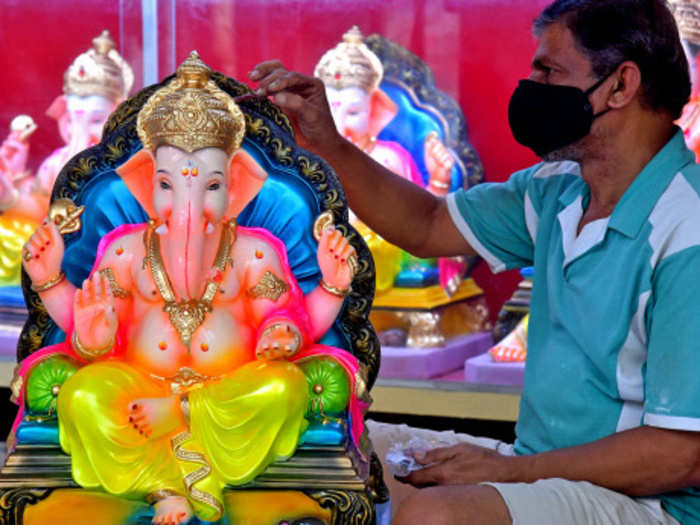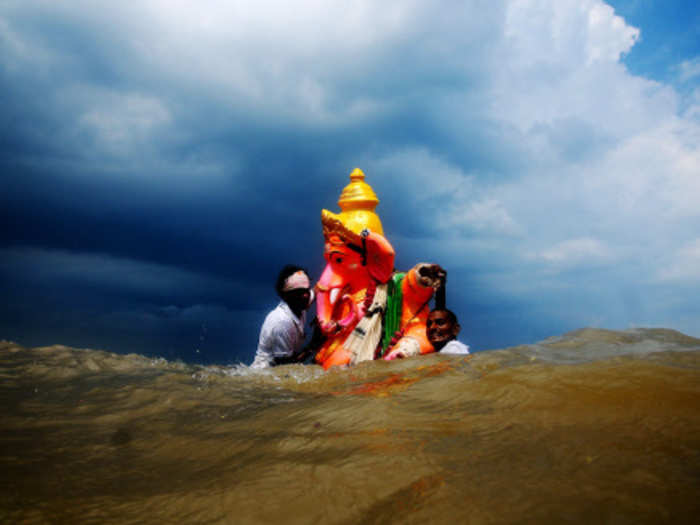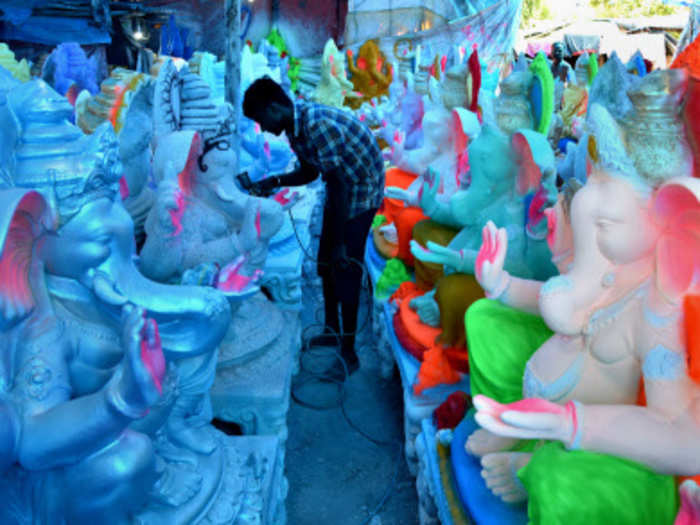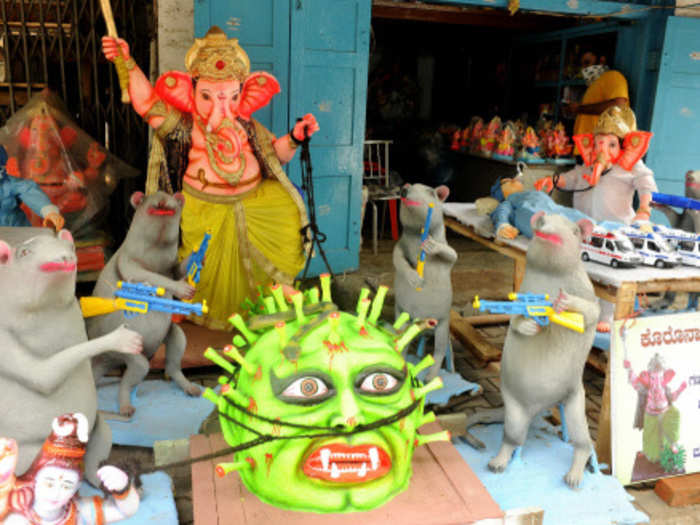The 10-day Ganesh festival will begin on August 22. Many Indian states see large congregation and community celebrations during this time of the year. However, owing to the current pandemic, governments have issued guidelines to ensure a safe celebration.
Ganesh Chaturthi celebration in Maharashtra
BCCL
Mandatory for all ‘mandals’ to take prior permission from the concerned local authority for the celebrations. It also capped the maximum idol height at 4 feet for public idols and 2 feet for the idols to be installed at home.
The government issued guidelines also advised Mandals to postpone immersion of idols till Maghi Ganesh Chaturthi which falls in February or during the next year’s Ganesh Chaturthi festival to ensure no overcrowding at the beaches.
It also asked residents to make use of metal or marble Ganesh idols at home. And, if clay idols are being installed, they should be immersed at home or in a nearby artificial pond.
The guidelines also said that there should be no crowds during daily `aarti’ and residents should abide by the noise pollution norms.
Ganesh Chaturthi celebration in Tamil Nadu
The Tamil Nadu state government guidelines advise people to celebrate Ganesh Chaturthi at their homes. The order said that installations of idols in public places and processions to immerse idols in water bodies would be prohibited to ensure no overcrowding.
Ganesh Chaturthi celebration in Goa
BCCL
The SOP states that for festival-related travel, if residents cross the Goa border for bringing home Ganpati idol for personal use or sale and leave Goa, and return within 24 hours, they won’t be asked to undergo quarantine or COVID-19 tests. Provided that they make an ‘entry’ to that effect with staff on duty at Goa border check posts.
Residents of Goa going out of the state for celebration, do not need an ‘exit permit’. However, on their return, the existing protocol will be followed, the government said.
The height of the idol should be limited to 4 feet so that no more than six people are required for installation and immersion.
Aarti should be limited to only the presence of 10 people, and no tirth prasad and Mahaprasad should be offered.
The police and the local bodies will monitor markets selling items for the festival to make sure the social distancing norms are being followed. All the shops in the market should make available hand sanitizers for all customers.
The guidelines also said that entertainment programmes are strictly prohibited, and the community celebration should only be allowed by local bodies on a case to case basis. The community celebration committees must make efforts to live stream religious proceedings to ensure no overcrowding and maximum community participation.
Detailed guidelines can be obtained here.
Ganesh Chaturthi celebration in Delhi
In its recently issued guidelines, the Delhi government barred large congregations, procession, community celebrations, or installation of idols at public places on Ganesh Chaturthi in the national capital this year.
“During Ganesh Chaturthi Festival, no idol of Lord Ganesha shall be set up in the tent/pandal/ public place, nor any kind of permission shall be granted for procession... similarly, no permission shall be granted for procession/tajiya during Muharram,” the order stated.
The order appealed to residents to celebrate the occasion at their home to prevent the spread of coronavirus.
“Sufficient police force will be deployed in all communally sensitive areas in the National Capital Territory of Delhi to ensure that the crowd does not gather at any religious/social place by any means,” the order said.
Ganesh Chaturthi celebration in Karnataka
Unlike other governments, Karnataka has banned the installation of Ganesha idols in public pandals. It has also prohibited the immersion of idols in public water bodies.
“People are requested to worship either in their homes or in temples in a simple way. Those who worship clay idols in their homes must immerse them in their own homes,” said the order by Chief Secretary TM Vijay Bhaskar.
The government also said that the action will be taken under the Disaster Management Act against those violating the rules.





